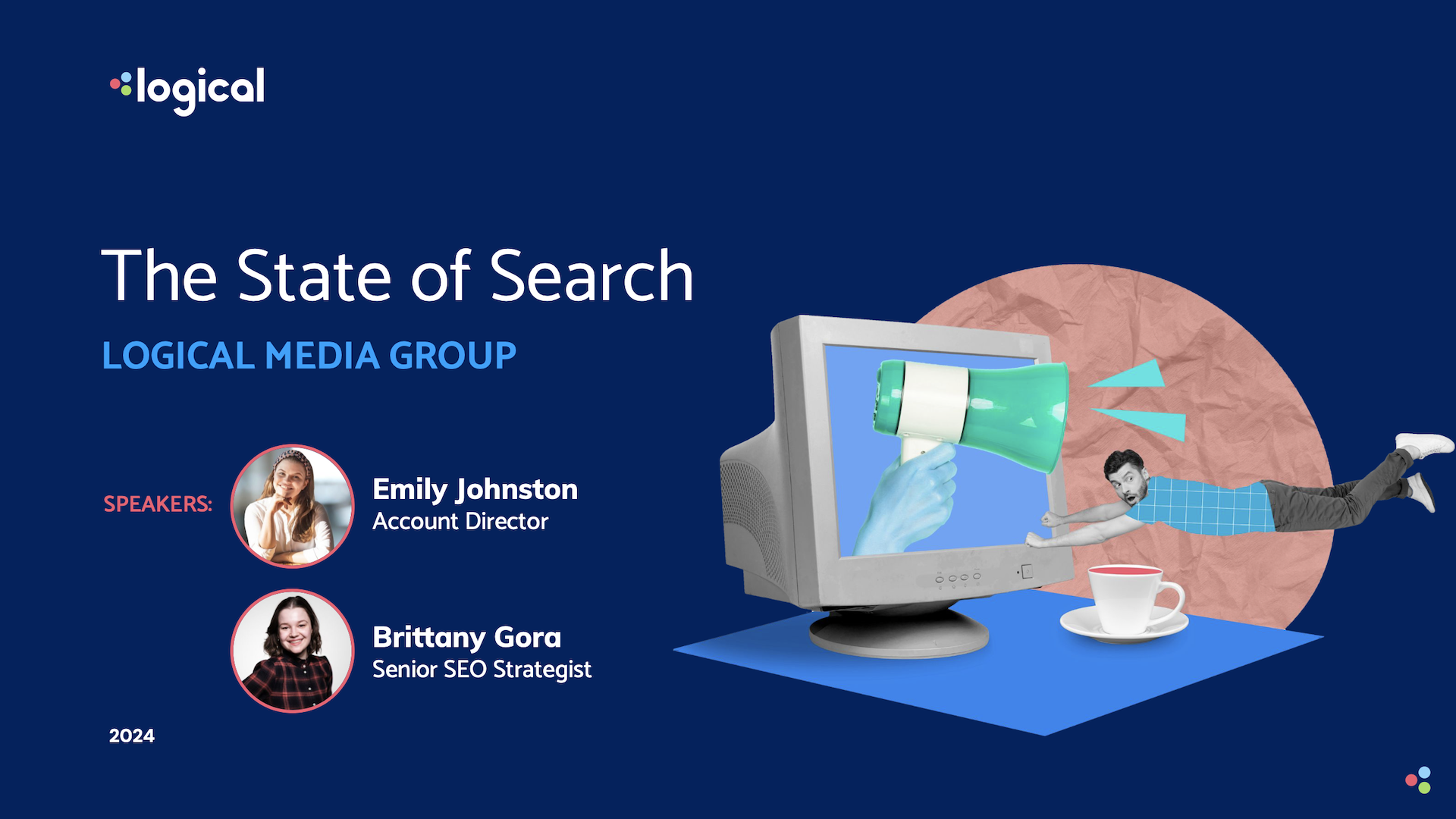The State of Search
with Brittany Gora and Emily Johnston


Search is Not Just Google Anymore: Uncovering The Current State of Search
Engagement with, and on, the Internet has changed over the past years. But how? With the Internet becoming a seemingly endless sea of information, you may not necessarily know how to roll with the tides. We can help you keep your head above water.
From understanding where search stands based on current and emerging technologies to learning about the wide array of adjustments that have recently occurred, get the details you need to stay afloat.
What Is the Current State of Search?
The biggest takeaway from marketing professionals based on these changes? Search has become more than search engines like Google. Though Google continues to help people seek the answers to their every day questions, users are increasingly relying on other sources for information, such as Instagram, TikTok, YouTube, and other platforms.
Even further, the rise of AI has contributed to transformations in the digital space and even improvements in search. This technology is able to anticipate user needs and better predict the results to serve.
What Has Caused These Changes in Search?
Algorithm Updates
Essentially, algorithm updates are systems that shift how search engines evaluate websites. Their impacts vary on the search landscape, with some having significant outcomes. For instance, Panda (released in 2011) heavily shaped how website owners saw their content; duplicate and thin content had a more difficult time earning higher rankings.
You may already know that Google updates frequently roll out each year. In fact, in March 2024, Google introduced more updates said to boast major effects, including initiatives to reduce spam and to continue removing low-quality sites.
Also, you may have noticed a rise in results from Reddit, Quora, and other platforms containing more first-hand knowledge. This is likely because traditional search engines like Google realize that users actively seek user-generated content to consume ranging perspectives.

SERP Personalization
Did you know your results are specifically tailored to your data? Google has confirmed utilizing users’ previous searches to provide more relevant results. Your device, location, search history, and other factors are taken into consideration when curating content recommendations for you. As a result, SERP (search engine results page) personalization directly impacts the ads, organic listings, and other features served to each user.
With unique recommendations for each individual comes increased volatility in rankings. This confirms the need to create content dedicated to the specific people that align with your business, their interests, and their queries.
Continuous Scroll (Desktop) and Infinite Scroll (Mobile)
Historically, Google has offered pages of search results, and in early 2023, Google presented a new method of displaying search results. These results now show up on one page, emphasizing the massive volume of related results users can receive for just one query.
This change seemed to influence user behavior when it comes to browsing search engine results pages; some users may continuously scroll and click through results, while others may only desire to check out the first few results they see. Ultimately, because of the ways in which content is displayed, as well as these nuances in engagement, we are expecting clicks to decrease, especially from organic traffic.
Multimodal Searches
Now more than ever, users are performing multimodal searches, which are various search techniques to acquire answers to queries. This often means performing a reverse image and video search to get to desired content. After all, images and videos can be helpful when finding product recommendations or learning from tutorials.
So, while your organization should continue to prioritize honing in on focused, relevant terms in your SEO strategy and other digital marketing strategies, high-quality images and videos are now more important than ever. Create new visual elements or update existing ones.
So, Now What?
You may have heard SEOs commonly recommending certain tactics to “appease Google”; however, who is using (and benefitting from) Google in the first place? People.
By tackling people-focused marketing, your organization is actively targeting the intents and queries that align with your preferred audiences. Additionally, focusing on people includes meeting customers where they are, no matter where they are.
Just because users don’t find you on Google doesn’t mean they can’t find you through other avenues. For example, they could be viewing infographics through your email campaigns and your social media accounts, or they could be watching videos you added to your product descriptions on Amazon. As such, it’s important to continue building your presence and authority on other platforms. To do this, display authenticity through your messaging, promote practical uses for your products and services, and provide support for users.
To learn more about how you can improve your website and leverage numerous platforms to reach and engage with prospective customers, check out SEO Roundtable: How Content Drives SEO Forward. Want the full scoop on this topic? At Logical’s first-ever Partner Event Day, team members Brittany Gora and Emily Johnston walked through everything organizations need to know about the current search landscape and how to navigate changes.

If your business requires digital marketing solutions designed specifically for your needs and goals, speak with our in-house experts. Our team consistently strives to stay ahead of industry happenings — and act accordingly as these developments arise. Struggling to create cohesion across your site and social media profiles? Do your cross-channel graphics need a refresh? Does your site need high-quality, updated content? We’re ready to partner with your organization.
Talk to an expert about your marketing needs







